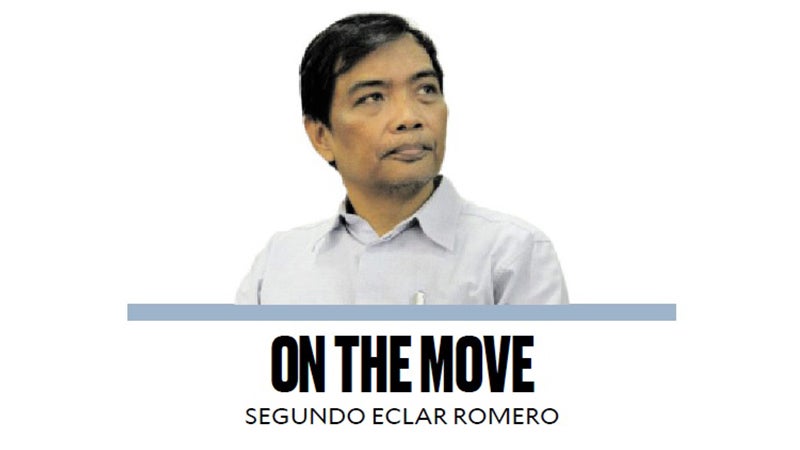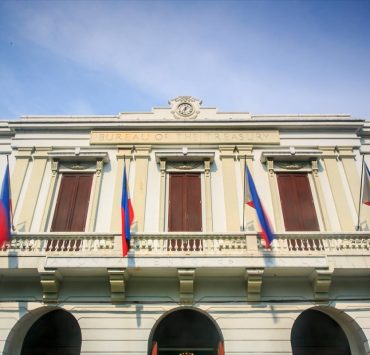A veteran journalist’s call for action

In a webinar hosted by the Vinzons Policy Center and the University of the Philippines Alumni Association last Saturday, veteran journalist Vergel O. Santos addressed the critical question of the Philippines’ future amid the escalating conflict in the West Philippine Sea and deep-seated political and economic issues.
Santos, a journalist for over 60 years, has edited two national dailies. He began his talk by highlighting the despair reflected in the question, “Who among us is ready to die for the country?” which was asked during a recent forum that he attended, emphasizing the perceived gravity of the Philippine situation. While acknowledging he had no magic formula, Santos underscored the responsibility of those with the capacity and desire to help and offered a clear course of action.
Santos stressed that the Filipino poor have suffered disproportionately and urged the audience, presumably people with the capacity and desire to help, to act on their behalf. The idea of “no one is left behind,” he said, is hopelessly idealistic given the limitations of the existing political and economic systems and the fragmentation of society.
Referencing the country’s persistent poverty rate and the inadequacy of government programs, he argued that the slow process of economic development alone cannot address the deep-seated problems faced by the marginalized. The wishful longing for an instantaneous redeemer, he suggested, has been exploited in election after election through unfulfilled promises.
Santos asserted that the nation’s regression is a collective failure. All through the years since the happy bloodless fluke of the people power revolution, we became so ecstatic we neglected to build on our toehold on the promise of democracy. We imagined the momentum alone would get us through. In a single generation alone, he decried, we saw the election of presidents like Estrada, Arroyo, Duterte, and current President Marcos. We have committed the crime of inaction and default.
He lamented the normalization of corruption, patronage politics, and election rigging, citing as an instance the unchallenged appointment of Mr. Marcos’ election lawyer as head of the election commission. He emphasized the systemic deprivation faced by the people, highlighting their lack of choices, means, health, opportunity, education, and self-worth. The people are not complicit in this dismal state of the nation. The system has been rigged against them. They have been deprived of choice.
As a solution, Santos proposed creating a new moral and political constituency—one that is self-contained, self-sustaining, and self-reformative. He advocated for the moral dimension to be expressed through sharing resources with the poor and compensating for their losses in the flawed political system in various ways.
He envisioned a political dimension rooted in “activist citizenship,” drawing inspiration from the mobilized supporters of Leni Robredo’s 2022 campaign. Santos emphasized the urgency of this approach, given the fragmentation of the opposition and limited time for reorientation. He proposed harnessing the energy of Robredo’s 15 million voters, transforming them into a potent political force. Even half of this number can constitute a significant swing vote in reshaping the trajectory of the nation. He stressed the importance of direct action and public demonstrations as powerful and credible means of expressing the people’s voice, surpassing the impact of compromised elections.
Santos concluded by advocating for the revival and deployment of the “protest armory” developed during the Marcos dictatorship, including rallies, boycotts, civil disobedience, and anti-corruption campaigns. This, he suggested, is a viable alternative to the current definition of patriotism in terms of dying for one’s country, offering a practical, more meaningful, and more participatory way to address the nation’s dire situation.
The ensuing open forum, attended by professionals, students, and former activists during their student days in the ’60s and ’70s, sparked discussions on political dynasties, collective action, the deterioration of democracy, the role of media in political education, and the credibility of electoral systems. Key takeaways included: the current youth’s perceived inaction and seeming reliance on older generations to take the lead in any forthcoming collective action initiative, the yearning for and disappointment in charismatic leaders, the seeming lack of fire in the hearts of the youth, the disarray and disfunction of current political parties, the lack of closure on election fraud issues, the return to patronage and corruption after people power, and the lack of investment in democracy and good governance.
If Santos’ talk succeeded in shifting the focus away from the question of dying for the country and toward practical contributions to national well-being, it was a worthwhile endeavor.

















